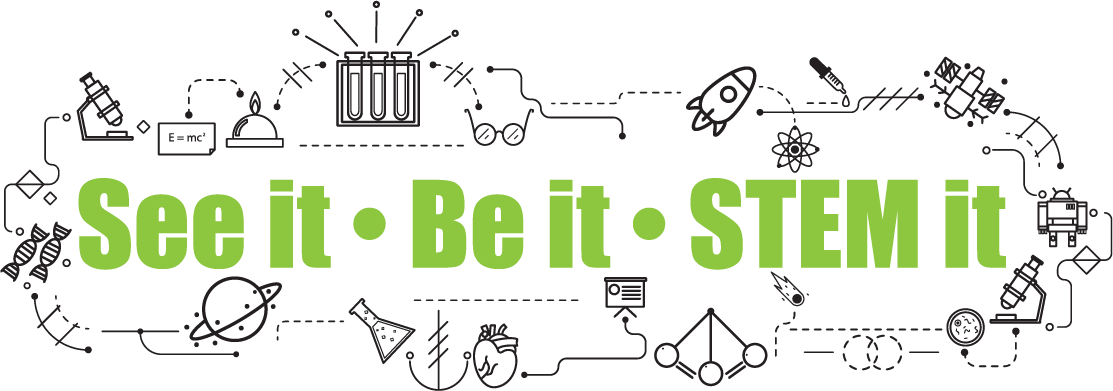Meet Alishba Imran
Alishba Imran is currently a high school student at Stephen Lewis Secondary School. She’s a machine learning and blockchain developer who's passionate about using emerging technologies to solve important problems in the world. She is currently the co-founder of Voltx, a machine learning software for energy storage, and a developer at Hanson Robotics where she is developing the future of humanoid robots and artificial general intelligence.
When did your love of STEM begin?
At 15, I co-founded Honestblocks, a blockchain platform to track medication and put an end to counterfeit medication in supply chain systems for 2 million people in rural India. This platform was eventually integrated into IBM Blockchain and is being used in various supply chain applications. For this work, I was named a Young Innovator to Watch at CES in 2020.
I’ve also worked with various startups and companies such as TD Bank, Pingme and CIBC. At TD Bank, I developed a new product to securely allow 2M+ clients to store their personal and financial data on a decentralized platform. I’ve also had the opportunity to be trained by McKinsey consultants and consulted with companies like Walmart, WealthSimple and Kidogo on their largest business problems.
I was always very interested in technology, the process of breaking down problems and then building systems to solve them. I’m fascinated by the ability for anyone to use technology as a way to progress humanity forward. I started building little code programs at a young age and joined robotics teams at my school where I got to further develop my skills in programming. It really wasn't until I joined a human accelerator program at age 14 where I got exposed to emerging technologies like quantum computing, artificial intelligence and started building my own projects. I've now found a passion for building things, learning about new technology and creating impactful products/research.
What is the best part about working in the field of STEM?
There's a lot of things that make it exciting to be in STEM but I definitely think it would be getting to meet and work on projects with like-minded people, and being at the forefront of innovation. I find it crazy that I can just sit at home, write a piece of code and have my own working machine that's solving problems for me. There has been no other place in time when young people have had equal access and equal chance to make an impact on the world. The world is changing exponentially but it's also not magic. Ordinary people like myself can create an impact and learn about how to create this future.
For example, I’m currently working on my own startup called Voltx, a machine learning product to accelerate the testing of energy storage devices like supercapacitors and batteries from 3 months to 3 days. We have clients including top manufacturers in energy storage such as a subsidiary of Tesla, Eaton, and are on track to reach 50,000 in revenue by mid 2021. Our product will be implemented into these companies to test and implement over 30,000 supercapacitor devices each year into grid systems and electric vehicles globally.
Alongside this, with San Jose State University and Hanson Robotics, I've developed a novel material, design and algorithm to decrease the costs of prosthetics from $10k to $700 and making them easier to use. My work has been published in prestigious AI workshops such as NeurIPS and AAAI. We recently published a preprint research paper on our work that you can check out here: https://arxiv.org/abs/2010.13983. I'm a huge advocate for females in STEM, mentoring others and have spoken on global stages such as Mobile World Congress, TEDXUW and more with audiences of 1,000+ to advocate and inspire others through my work. I've won awards such as Young Leader at Enterprise Blockchain Awards, STEM Pioneer by Microsoft Teams & Ireland Tech Summit and a community service recognition award on behalf of PM Justin Trudeau, for my work.
What advice would you give young women interested in a career in STEM?
You might hear this all the time but I think there's so much upside in starting early. You have more room to grow, learn the right mindsets and the technical skills. I've found that consistency and hard work are the two main things you need to learn and grow in a field. Especially now, we're at a point in time where we have access to 90% of the same knowledge that people like Steve Jobs, Elon Musk and Bill Gates do. Crazy thing is that we also have access to some of the smartest people in their fields and communities to help us along the way. No one's ever had this before. I think once you realize these two things, you'll also realize that most of what's holding you back is yourself.
If I were getting started in STEM, I would figure out what skills I need, and then start getting in touch with the right people and finding the right resources online to build these skills. One way to start is by offering your time to advise and help other companies. In the blockchain space, I’ve had the chance to advise Twitter groups and Hyperledger on different protocols and frameworks they can build and implement in their companies. Lastly, I’d say that community is key in helping you grow so if you can find the right communities and mentors earlier on then this will help you tremendously along your journey.


